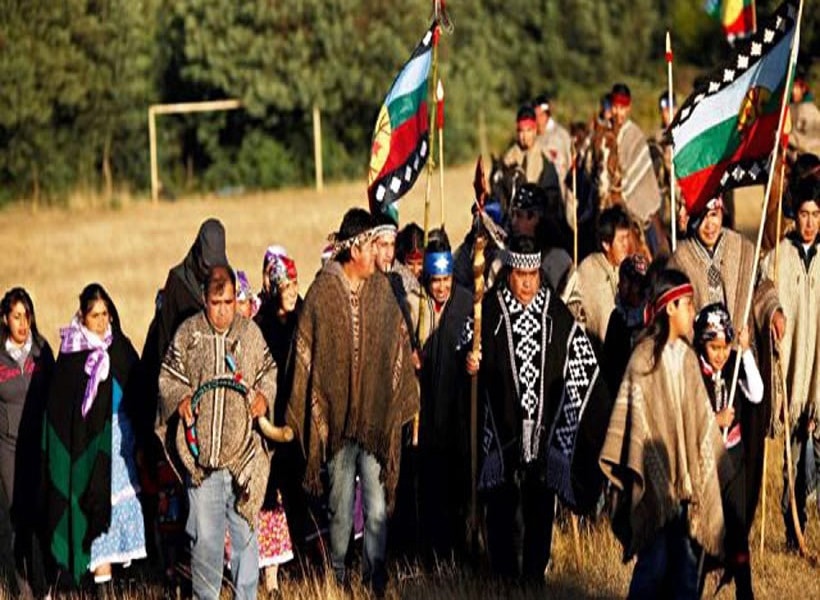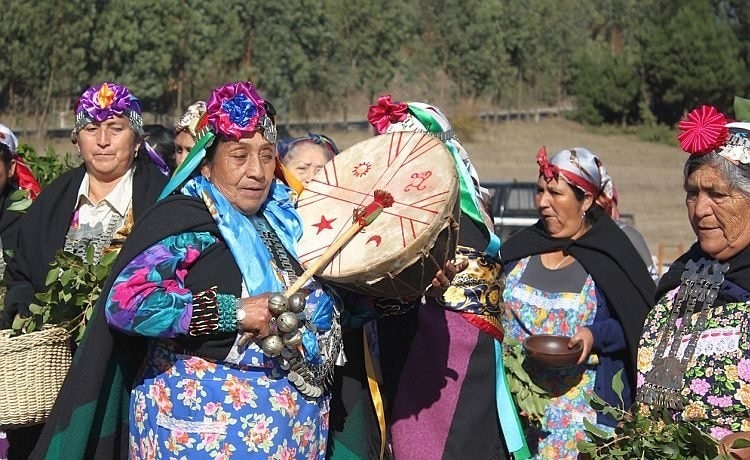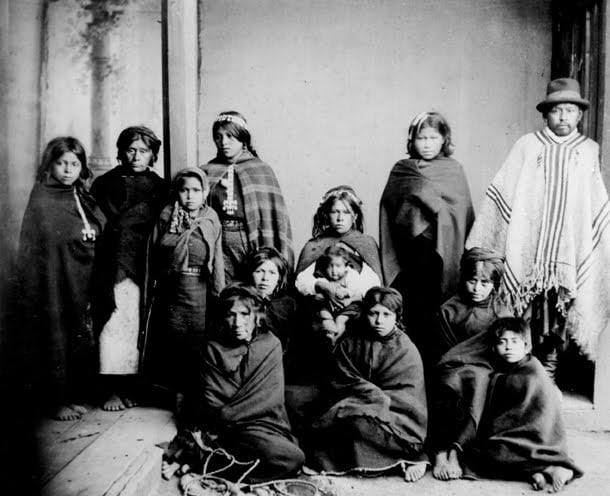A bit of information from our indigenous people gives us the opportunity to know, through this interesting and brief article, a little more about the Mapuche Social Organization and much more. Don't stop reading it! It will surely seem important to you, all the information.

Social organization of the Mapuche: Its base, driving and transcendence
The social organization of the Mapuches was structured in a harmonious relationship with nature, the pre-Hispanic Mapuche social organization was very different, since it allowed itself to develop taking advantage of the abundant resources that the environment offered, respecting the admapu.
What was the admapu
For the Mapuches, the admapu were the moral, religious and spiritual rules that administer the Araucanian society, in the same way, being a gift given by the god Ngenechén to the ancestors, it specifies the identity based on the permanent respectful interaction with nature.
As we can see, the Mapuche social organization and the right of the family to cooperate in hunting, gathering and agricultural activities gradually also established the lonco jurisdiction.
If it is not easy to know how the Mapuche social society was formed before the arrival of the conquest, due to lack of previous information, the Spaniards did not understand how a constituted stateless society gave them war, even conquered them.
For this reason, they were considered to be outside all civilization, but historians have established that the structure of this society was based on family groups with patrilineal kinship ties, called lofs.

In this way, in the Mapuche culture, each lof was in charge of a lonko or cacique, above was the quiñelen, who in turn commanded several lofs, and above was the lebo, who resolved all matters related to war. or peace.
On the other hand, in the same rank as the wolf was the ayllarehue, which was made up of family or hostage clans, which dominated a province, although each one retained its autonomy; At a higher level was the butalmapu, made up of several aillarehues.
One of the changes that the conquest tried to bring to the Mapuche social organization was the strengthening of the figure of the lonko, which lasted until 1881, with the establishment of a system of protectorate to cede land to the communities, identified with the name of each lonco,
However, it did not work in the integration of the Mapuche with Chilean society, despite this, in the traditional Mapuche groups of today there are two fundamental leaders:
The machi, who is in charge of curing the soul or body of people, is recognized by her accessories such as the trapelakucha or the trarilonko, and the lonco, which occupies a job with administrative or religious meanings.

In this way, this small Mapuche social organization works today to reunite the generations that have migrated to urban areas.
Mapuche religion
The religion of this ethnic group is the indigenous religious beliefs and practices of the culture of the Mapuche people, an indigenous people living in Chile and Argentina.
Generalities
When describing the beliefs of the Mapuche people, it should be noted previously that there are no written records of ancient legends and myths before the arrival of the Spanish, since their religious beliefs were transmitted orally.
This means that their beliefs are characterized by not being completely homogeneous, presenting variations and differences between the different biases, as well as between the different population groups and families that make up each one of them, and that they are distributed throughout the territory that each one occupies. one of them.
Likewise, it must be taken into account that many of their beliefs have been assimilated to the myths and legends of Chilean folklore and, to a lesser extent, to the folklore of certain regions of Argentina, for which many of them have been modified.
To a greater or lesser extent, both as a consequence of Christianity (due in large part to forced evangelism by the Spanish), mainly due to syncretism, as a result of a misinterpretation, or adaptation, of the myth within the society of the two countries. .
It has also given rise to variations and differences in many of these beliefs that have been assimilated into the culture of Chile and Argentina and even into the very form of their culture.
Likewise, above the parity and links that exist between the religious manifestations and the mythology of South America that are common to all the Amerindian peoples of this continent.
The religious beliefs and myths of the Mapuche are distinguished by presenting unique characteristics that are directly related to the Mapuche and their particularities, their customs, their social life and, mainly, their cosmological vision and their religious customs.
Indigenous spiritual thought and the West
Cyclical time is the thought pattern of many Native American peoples, present in the culture of the Mapuche people, which is the alternative to the linear thought pattern devised by European rationalism and positivism, which imprinted on it the existing mental pattern. Western world for 400 years.

Linear time corresponding to a Jewish philosophical revolution based on Zoroastrianism is presented in contrast to the theory of cyclical time. His way of understanding time was fundamental for Western development and what we feel as modernity.
For this reason, from the indigenous world, it is emphasized that "the West has definitively denied the existence of an indigenous philosophy, relegating it to the category of a simple worldview, folklore or mythical thought."
The interaction of linear and cyclical thought has been achieved through syncretism, but this interaction would affect the essence of Mapuche beliefs, since it changes the core of their vision of the Universe by imposing a linear vision.